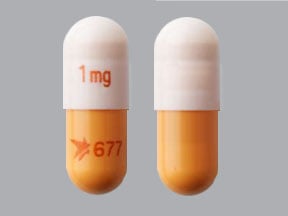
Astagraf Xl Coupons & Savings Card – Discount Prices from $177.29
My prescription
Edit
1MG, Astagraf Xl (30 Capsule Extended Release 24 Hours)
Select pharmacy

CVS
$199.18
COUPON PRICE
Walgreens
$177.29
COUPON PRICE
Albertsons
$184.78
COUPON PRICE
Walmart
$192.79
COUPON PRICEAstagraf Xl savings card
Show this card to your pharmacist
Walgreens
$177.29
BIN
ID
PCN
GRP
019876
LHD5D9B91E
CHIPPO
LHX
Powered by
More prescriptions for organ transplant
More prescriptions for organ transplant
Price history for Astagraf Xl
30 Capsule Extended Release 24 Hours, 1MG
Average retail price for Astagraf Xl
Average SaveHealth price for Astagraf Xl
Our price history data is based on aggregated prescription data collected from participating pharmacies in America. Our prescription data updates daily to reflect the latest price changes. If you notice a missing data point, it means there wasn't sufficient data available to generate a monetary value for that date.
*Retail prices are based on pharmacy claims data, and may not be accurate when we don't have enough claims.
Astagraf Xl dosage forms
Dosage Quantity Price from Per unit 0.5MG 30 Capsule Extended Release 24 Hours $84.64 $2.82 1MG 30 Capsule Extended Release 24 Hours $177.29 $5.91 5MG 30 Capsule Extended Release 24 Hours $918.46 $30.61
| Dosage | Quantity | Price from | Per unit |
|---|---|---|---|
| 0.5MG | 30 Capsule Extended Release 24 Hours | $84.64 | $2.82 |
| 1MG | 30 Capsule Extended Release 24 Hours | $177.29 | $5.91 |
| 5MG | 30 Capsule Extended Release 24 Hours | $918.46 | $30.61 |
What is ASTAGRAF XL used for?
ASTAGRAF XL is used for the prevention of organ rejection in patients who have undergone a kidney transplant. It is an extended-release formulation of tacrolimus, which is an immunosuppressant that helps to lower the body's immune response to prevent the rejection of the transplanted organ.
How much does ASTAGRAF XL cost?
The cost of ASTAGRAF XL can vary depending on factors such as the dosage, quantity, pharmacy location, and whether the patient has insurance coverage. It is recommended to check with local pharmacies or insurance providers for the most accurate and up-to-date pricing information. Additionally, patient assistance programs may be available to help reduce the cost for eligible individuals.
What is the generic for ASTAGRAF XL?
The generic for ASTAGRAF XL is tacrolimus.
What is the generic for Astagraf?
The generic name for Astagraf is tacrolimus.
